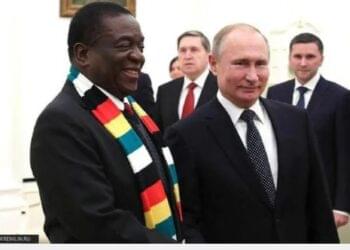PARLIAMENT is set to debate the Criminal Law (Codification and Reform) (Protection of Children and Young Persons) Amendment Bill that raises the age of s3xual consent from 16 to 18.
President Mnangagwa invoked his powers under the Presidential Powers (Temporary Measures) Act to gazette Statutory Instrument 2 of 2024, in compliance with a Constitutional Court ruling that had declared a section of the law that sets s3xual consent age at 16 as unconstitutional.
The Statutory Instrument invoked by the President raised the age of consent to s3xual relations to 18, consistent with the Constitution which sets the minimum marriage age at 18 and defines all young people as below the age of 18, while the original law defined them as below the age of 16, so protection was withdrawn from 17 and 18-year-olds.
The Presidential Powers however, have a lifespan of just six months during which Parliament has to pass a substantive law if the desire is to make the measure permanent.
The preamble to the Bill gazetted last week confirms that the proposed law is meant to confirm the temporary law.
“This Bill will confirm amendments made by a Presidential emergency decree that was necessitated by the implementation of the Constitutional Court’s judgment in Kawenda v Minister of Justice and Others. The President’s intervention was rendered more urgent by a court-ordered release of all offenders convicted of statutory rape,” reads the preamble of the Bill.
“The Criminal Law (Codification and Reform) Act (commonly called the Criminal Law Code) contains several sections that protect children from s3xual exploitation. The sections call children “young persons”, and that term is defined as meaning boys and girls under the age of 16 years. The Constitution, on the other hand, fixes 18 years as the age at which children become adults, so although the Criminal Law Code protects children under the age of 16 it does not provide protection for children between the ages of 17 and 18.
“As a result the Constitutional Court has declared the definition of “young person” in section 61, as well as sections 70, 76, 83 and 86 of the Code, to be unconstitutional and void.”
The objective of the Bill is to amend the law in a manner that protects children.
“The main purpose of this Bill is to amend the Criminal Law Code by replacing those sections and extending the Code’s protection to all children up to the age of 18 years, as required by the Constitution. The Bill will also amend the Criminal Procedure and Evidence Act to make it possible for children and other witnesses who cannot talk to give evidence in other ways such as through written statements, signs and other augmentative and alternative communications,” reads the Bill.
Clause Three will amend the Criminal Law Code on the definition of “extra-marital sexual intercourse” to make it clear that child marriages are not recognised as valid marriages.
“In other words, s3xual intercourse between a child and an adult will not be legal even if they have gone through a form of marriage. The new definition of “young person” will extend the Code’s protection to cover all children, ie boys and girls under the age of 18 years,” reads the Bill.
Clause Four will replace section 70 of the Criminal Law Code, which makes it a crime to have s3xual intercourse or engage in other sexual activity with a young person.
“The new section will differ from the existing one in the following ways: It will extend the protection provided by the section to cover boys and girls up to the age of 18 years.
“It will add a provision stating that if the persons who engage in sexual activity are of a similar age — specifically where the difference in their ages is three years or less — the Prosecutor-General will have to authorise their prosecution before they can be charged under the section. Before authorising a prosecution, the Prosecutor-General will have to consider a report from a probation officer but will not be obliged to follow the probation officer’s advice,” reads the Bill.
“It will add another provision making it clear that the section does not limit the provisions of other laws, for example the Children’s Act, which deal with the prosecution of children.”
SOURCE : THE HERALD












